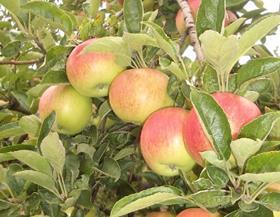
Caution has remained the watchword for traders in Dubai over the last few years, as companies adopt a prudent approach with their customers in order to guarantee payments. The reality of businesses shutting their doors and leaving the country with unpaid debts continues, impacting the whole supply chain.
“You have to be very careful when giving credit limits,” says Hani Ayloush of Fruit Line Trading. “We start small and then increase them gradually. We look at the history of a company we work with. Sometimes we even look at the owner’s bank statements.”
Fierce competition on the market has quickly translated into low margins. In order to ensure payment, most traders currently prefer to sell to the hypermarkets, even if they sometimes have to sell below cost. “You’ve got the product and you have to pay your employees and the trucks, and you can’t keep it for long or the quality will go down,” says Ayloush. “The supermarkets know this. This is how they can occasionally offer huge discounts to consumers.”
“Low oil prices in Saudi Arabia are leading to liquidity shortages, causing all sorts of problems on the market, including in Dubai,” says Ali Arjomandi of Marhaba MTA General Trading. “We are currently keeping stocks low and focusing on our core customers. Even sales to the smaller grocery stores are going down as competition intensifies.”
According to Hadi Abuseedo of Abuseedo Trading, many companies have suffered from failing to change how they conduct business. “They still bring fruit into Dubai and then wait for customers to come,” he says. “This is not the best way. We are going more direct. We have to think of ourselves as a logistics company that provides logistics solutions. We are making huge savings on each container by going direct, avoiding trucking costs, port costs, documentation costs.”
Abuseedo is also investing in joint ventures inside and outside the Middle East. “Through joint ventures, we have the right to access companies’ books, so we don’t have to rely on a third-party insurance company,” he says. “This is how we prefer to work. We’ve been doing some apple volumes from Poland through a joint venture with a Dutch company.”
Indeed, Abuseedo sees positives in many of the issues affecting the local market, including the Russian embargo, which forced many European exporters to seek alternative markets, including in the Gulf. “Without the Russian ban, we wouldn’t be in Bulgaria or Poland,” he says. “It has made us less focused on price. What we are looking for now is high quality at a fair price.”
The Russian ban is also opening up opportunities for the likes of Iran, reveals Abuseedo. “Iranian produce is going to Russia now,” he says, “and Iranian ports could be the ideal stop for others wanting to send to Russia too, saving many days’ travel.”
Meanwhile, Syria and Yemen used to be net producers for the region, but war and instability have arrested exports from these countries. “This has forced Turkish exporters to start exporting by container, coming on a weekly basis, instead of arriving every day by truck,” reveals Abuseedo. “It is much more organised now. Turkish lemons used to take three to four days to reach the market. Now it is closer to 20 days, limiting the window for Turkey and widening it for South Africa.”



